If you are interested in pursuing a career in healthcare in which you coordinate, lead, and plan healthcare services and facilities, there are many affordable online master’s of healthcare administration and management degrees to help you reach your professional goals. According to the U.S. Bureau of Labor Statistics (BLS), employment of medical and health services managers is expected to grow 20 percent between 2016 and 2026, much faster than the average for all occupations. If you are ready to get started in this exciting and challenging field, check out the following list of the top 25 most affordable online master’s in healthcare administration and management degrees below.
Methodology
Using information obtained from U.S. News & World Report, the National Center for Education Statistics (NCES) College Navigator database, and each school’s website, we developed the following list of schools in order to help graduates select the best master’s degree in healthcare administration for their professional goals and academic needs. We conducted a search for the term Master’s of Healthcare Administration and Management degree at the NCES, which yielded 75 results. We then narrowed down this initial pool into the top 25 colleges and universities based on factors such as the cost of tuition, student-to-faculty ratios, and national rankings.
Average Cost of Attendance
When comparing graduate schools for pursuing your Master’s in Healthcare Administration degree, it is important to look at the cost of the program to avoid wasting your time considering a school that may not be affordable. For the purpose of this list, all of the degrees come in at under $40,000 in total program tuition. While we provided both in-state and out-of-state costs, we only awarded points based on in-state rates as indicated below.
Points:
Under $20,000: 3 points
$20,001 to $30,000: 2 points
$30,001 to $40,000: 1 point
Student-to-Faculty Ratio
Whereas larger schools are known for offering more concentrations and majors, more extracurriculars, and more electives, smaller schools tend to provide more intimate class settings in which students benefit from individualized instruction and opportunities to develop close relationships with faculty and peers. Although there are benefits to both types of institutions, we awarded the most points to schools that reported student-to-faculty ratios of 10 or fewer students.
Points:
10:1 or lower: 3 points
11:1 to 15:1: 2 points
Higher than 15:1: 1 point
College Ranking
Not only is it important to look at the cost and the size of the school, but you should also consider how the institution compares to others offering similar degrees and programs across the country. For the purpose of this ranking, we used U.S. News & World Report’s Best Health Care Management Programs category as a resource for determining the quality and offerings of each program and awarded points as indicated below.
Points:
U.S. News & World Report: Best Health Care Management Program Ranking:
Top 10: 5 points
Top 25: 3 points
Top 50: 2 points
Top 75: 1 points
Ranking Top 25 Most Affordable Online Master’s of Healthcare Administration and Management Degrees
25. Stevenson University
Owings Mills, Maryland

Points: 4
Program Website
The online master’s degree in healthcare management at Stevenson University is comprised of courses taught by practicing healthcare managers that combine applied skills and expertise with theory to help students expand their skill sets. Students can choose from two concentrations based on their career aspirations and personal interests: project management in healthcare or quality management and patient safety. The program consists of 36 credit hours of study, and all students take required courses in organizational behavior, healthcare finance, project and resource management, human resources development, and managerial epidemiology and statistics. Other mandatory areas of study include healthcare administration and management as well as healthcare ethics, law, and policy. An internship is available as an elective for students seeking a career change and for those without work experience in the healthcare industry.
Degree Options:
Master’s in Healthcare Management
In-State Tuition: $24,120
Out-of-State Tuition: $24,120
Student-to-Faculty Ratio: 16:1
U.S. News & World Report Ranking:
N/A
24. Concordia University Irvine
Irvine, California

Points: 3
Program Website
The Master of Healthcare Administration at Concordia University Irvine consists of 36 required units of study and no elective offerings. Students take one course at a time, and each course lasts seven weeks. Students delve into topics in human resource management, healthcare law, healthcare quality assurance, and healthcare communication as well as long-term administration, finance, leadership, and healthcare organizational management. A three-unit capstone practicum in health services management is also required, providing students with a practice setting to develop and examine their own management skills. Twice per year, the MHA program hosts on-campus workshops in Concordia that provide graduate students the opportunity to interact in-person with faculty, peers, and alumni.
Degree Options:
Master of Healthcare Administration (MHA)
In-State Tuition: $22,140
Out-of-State Tuition: $22,140
Student-to-Faculty Ratio: 16:1
U.S. News & World Report Ranking:
N/A
23. University of Central Florida
Orlando, Florida
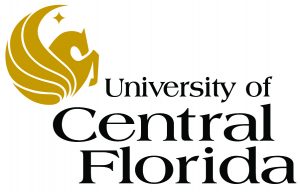
Points: 4
Program Website
The University of Central Florida confers a 44-credit-hour executive Master of Health Administration degree through its College of Community Innovation and Education. The program is organized into a cohort of no more than 30 students, and students progress through the curriculum at the same time. Coursework allows students to deepen their understanding of issues facing healthcare organizations and practitioners, and students can expect to study areas such as healthcare policy, quality and risk management, informatics, and more. Graduate students must have a minimum of three years of healthcare management experience in order to be admitted into the program, and students may graduate from the program in as few as two years.
Degree Options:
Executive Master of Health Administration, EMHA
In-State Tuition: $33,998
Out-of-State Tuition: $33,998
Student-to-Faculty Ratio: 30:1
U.S. News & World Report Ranking:
#46 (tie)
22. Valparaiso University
Valparaiso, Indiana

Points: 4
Program Website
Valparaiso University’s master’s degree in health administration is an interdisciplinary program that prepares professionals and students for advancement and careers in health administration. Courses aim to establish a foundation based on business principles, followed by specific applications to the healthcare industry. Students take one three-credit elective, a one- to six-credit internship, and six credits in core enhancement topics such as global health, marketing and promotion, health in the community, and international health and healthcare organizations. Core requirements include 27 credits of study in areas such as legal and ethical issues, leadership, management, research, organization, and healthcare information. The curriculum includes both online and on-campus components, and it is designed so that part-time students can complete the degree in 30 months, while full-time students may do so in 18 months.
Degree Options:
Master’s of Health Administration (MHA)
In-State Tuition: $27,885
Out-of-State Tuition: $27,885
Student-to-Faculty Ratio: 11:1
U.S. News & World Report Ranking:
N/A
21. Purdue University Global
Fort Lauderdale, Florida
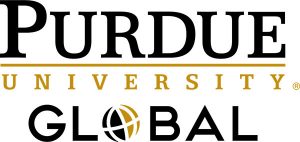
Points: 4
Program Website
The Master of Health Care Administration at Purdue University Global helps students develop the professional, ethical, and administrative skills necessary to pursue leadership positions in the field of healthcare. The program is available entirely online and consists of 10-week courses that require a study commitment of 12 to 15 hours per week. Students complete 52 credits in areas such as health information management and assessment, community health assessment, healthcare operations and quality assessment, healthcare financial management, and organizational development for healthcare. The online master’s degree culminates in a practice-focused capstone project that allows students to work under the mentorship of a faculty advisor to apply what they have learned through the program to a real-world, challenging issue or problem.
Degree Options:
Master of Health Care Administration
In-State Tuition: $25,220
Out-of-State Tuition: $25,220
Student-to-Faculty Ratio: 13:1
U.S. News & World Report Ranking:
N/A
20. Tiffin University
Tiffin, Ohio

Points: 4
Program Website
With foundational business practices ranging from marketing management to human resources to finance, the Master of Business Administration with a concentration in healthcare administration at Tiffin University prepares students with new technologies and decision-making tools so that graduates can stay current in healthcare ethics and law. The 36-hour curriculum consists of 24 hours of core business classes in economics, management, human resources, and finances as well as 12 hours of healthcare administration classes in healthcare finance and process management, current issues in healthcare administration, managing healthcare systems, and healthcare ethics, law, and policy. The program is designed for working professionals employed in the fields of business, healthcare, social services, child care, and education.
Degree Options:
MBA With a Concentration in Healthcare Administration
In-State Tuition: $25,200
Out-of-State Tuition: $25,200
Student-to-Faculty Ratio: 12:1
U.S. News & World Report Ranking:
N/A
19. Indiana Wesleyan University
Marion, Indiana

Points: 4
Program Website
Students in the Master of Business Administration with a concentration in healthcare administration program at Indiana Wesleyan University can earn their degree in 18 to 24 months. Classes meet online or one night per week on IWU’s campus, and the program is organized into a cohort that provides mutual support. The ACBSP-accredited program includes 42 credits of study, and courses are taken sequentially, one at a time, until the student earns his or her degree. Business-focused areas of study include economics, statistics, accounting and finance, and decision-making, while core healthcare-focused courses cover topics in strategic development, technology and information management, finance, principles and policies and governance and organizational structure. The program culminates with a healthcare administration capstone in which students demonstrate an integrated understanding of biblical and ethical standards as well as best practices in business administration.
Degree Options:
MBA in Healthcare Administration
In-State Tuition: $24,528
Out-of-State Tuition: $24,528
Student-to-Faculty Ratio: 14:1
U.S. News & World Report Ranking:
N/A
18. Saint Joseph’s College of Maine
Standish, Maine

Points: 4
Program Website
Saint Joseph’s College of Maine confers an online, student-centric Master of Health Administration degree in which students develop the leadership skills they need for roles in healthcare delivery and performance, financial management, organization, and healthcare management. The program is the only online degree of its kind that has earned accreditation from the National Association of Long-Term Care Administrator Boards (NAB). Courses are offered in 12-week terms, and students take two courses per term, completing the program in as few as two years. The 42-credit curriculum is comprised of a capstone course, two elective courses, and 10 core health administration courses that emphasize leadership, ethical behavior, human resources, and financial and organizational management.
Degree Options:
Master of Health Administration (MHA)
In-State Tuition: $22,680
Out-of-State Tuition: $22,680
Student-to-Faculty Ratio: 14:1
U.S. News & World Report Ranking:
N/A
17. Southern New Hampshire University
Manchester, New Hampshire

Points: 4
Program Website
The Master of Science in Healthcare Administration at Southern New Hampshire University is available online and cover a number of areas, including finance and economics, strategic planning, informatics, policy, law. Students complete 36 credits of coursework in human resource management, healthcare quality and improvement, marketing and communications strategies, and program design, planning, and evaluation. The program culminates in a healthcare administration capstone, and graduates are prepared to work in medical facilities, state health departments, insurance and pharmaceutical companies, national associations, consulting firms, and more. Those who take two courses per 10-week term can complete the graduate program in as few as 15 months.
Degree Options:
MS in Healthcare Administration
In-State Tuition: $22,572
Out-of-State Tuition: $22,572
Student-to-Faculty Ratio: 14:1
U.S. News & World Report Ranking:
N/A
16. Rivier University
Nashua, New Hampshire
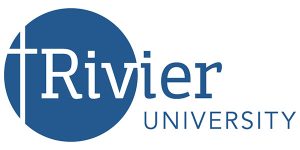
Points: 4
Program Website
Rivier University confers an online Master of Business Administration in Healthcare Administration degree that enhances students’ understanding of healthcare finance, healthcare law and ethics, human resources management, healthcare marketing strategies, policy development, risk management, compliance, information management, and related subjects. Designed for working professionals and available entirely online, the program is comprised of 36 credit hours of study, with each course lasting seven weeks. Students may earn their degree within two years if taking two courses per term. The school operates on a rolling admissions system and offers multiple start dates for maximum flexibility.
Degree Options:
MBA Healthcare Administration
In-State Tuition: $22,320
Out-of-State Tuition: $22,320
Student-to-Faculty Ratio: 15:1
U.S. News & World Report Ranking:
N/A
15. Salve Regina University
Newport, Rhode Island
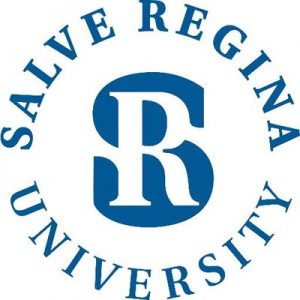
Points: 4
Program Website
The Master of Science in Health Care Administration and Management at Salve Regina University is available entirely online, on-campus, or in a hybrid online/classroom format. Taught by respected professionals who blend personal experiences with theoretical foundations, the IACBE-accredited program consists of 12 courses for a total of 36 credits of study in healthcare management theory, public health administration, ethics, finance, human resources management, research methods, and health law, policy, and marketing. The program culminates in an internship and seminar in healthcare administration and management. A concentration in cybersecurity is also available. Graduates are prepared for management positions in non-government and government agencies, physician practices, mental health facilities, health systems, and hospitals.
Degree Options:
Master of Science in Health Care Administration and Management
In-State Tuition: $21,780
Out-of-State Tuition: $21,780
Student-to-Faculty Ratio: 14:1
U.S. News & World Report Ranking:
N/A
14. Clarkson College
Omaha, Nebraska

Points: 4
Program Website
The online Master in Health Care Administration degree at Clarkson College is an accelerated program that is available entirely online. Students focus on diverse leadership strategies, including identifying problems in a business, assessing information, debating alternatives, and selecting an optimal solution. Areas of study include planning and marketing, law and ethics, informatics and analytics, human resources, and project management. The accelerated degree consists of six-week courses, and students take one class at a time. The curriculum is comprised of 39 to 45 semester hours of study, depending on the number of transfer credits a student may have, and the program can be completed in four to seven semesters. At the culmination of the program, graduate students complete a three-semester-hour capstone project in the form of either a research project or a business plan.
Degree Options:
Master’s Degree in Health Care Administration
In-State Tuition: $21,528
Out-of-State Tuition: $21,528
Student-to-Faculty Ratio: 13:1
U.S. News & World Report Ranking:
N/A
13. Park University
Parkville, Missouri
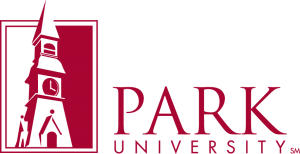
Points: 4
Program Website
Park University’s School of Business confers an online Master of Healthcare Administration that helps students master the managerial, political, financial, legal, and organizational aspects of health systems management. Students may choose from online Master of Health Administration degrees with concentrations in general healthcare administration, disaster emergency management, finance, homeland security, human resource management, global business, management accounting, management information systems, project management, and quality and innovation management. Each MHA program is comprised of 36 hours of study, and all students complete required core courses in healthcare operations management, organizational behavior and leadership, economics and policy, healthcare delivery systems, legal and ethical issues, finance, and management. The program culminates in a healthcare strategic management and marketing capstone course.
Degree Options:
Master of Healthcare Administration
In-State Tuition: $20,160
Out-of-State Tuition: $20,160
Student-to-Faculty Ratio: 15:1
U.S. News & World Report Ranking:
N/A
12. University of Arkansas Fort Smith
Fort Smith, Arkansas

Points: 4
Program Website
The University of Arkansas Fort Smith confers an online Master of Science in Healthcare Administration designed to prepare healthcare professionals to successfully lead and manage healthcare organizations. Courses provide information related to general healthcare management, the environment in which healthcare providers and managers function, and business principles, including leadership skills and behavior, relationship management and communication skills, emotional intelligence and ethical behavior, professionalism, and systems thinking. Students complete 40 hours of study, and coursework is available entirely online. The program culminates in a graduate project in healthcare administration, and students can earn their degree within two years of full-time study.
Degree Options:
Master of Science in Healthcare Administration (Online)
In-State Tuition: $19,920
Out-of-State Tuition: $19,920
Student-to-Faculty Ratio: 18:1
U.S. News & World Report Ranking:
N/A
11. University of Maryland University College
Largo, Maryland

Points: 4
Program Website
The University of Maryland University College offers a Master of Science in Healthcare Administration designed to develop leaders in the field of healthcare. Through the program, graduate students gain management skills and expert knowledge in emerging topics in the field. Students investigate areas of healthcare administration such as public health administration, statistics for managerial decision-making, financial decision-making, institutional organization and management, healthcare leadership, and intercultural communication. Students must complete a three-credit healthcare administration capstone course that integrates skills and knowledge they have developed through the program. Graduates are prepared for leadership roles in government, nonprofit organizations, professional societies, and the private sectors as well as for legislative, health systems analysis, and management positions.
Degree Options:
Master of Science in Healthcare Administration
In-State Tuition: $19,236
Out-of-State Tuition: $27,678
Student-to-Faculty Ratio: 19:1
U.S. News & World Report Ranking:
N/A
10. University of Southern Indiana
Evansville, Indiana
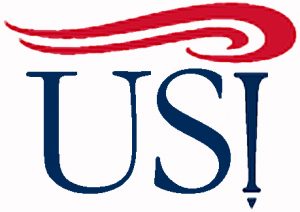
Points: 4
Program Website
The College of Nursing and Health Professions at the University of Southern Indiana confers a Master of Health Administration program that consists of online coursework and three required on-campus intensives held at USI. Students may choose from either an online MHA or an MHA 4+1 option that combines the bachelor’s and master’s programs into one curriculum. Students may complete both 39-credit-hour programs in six semesters. USI organizes students into a cohort in which they progress through the program together, completing classes in areas such as legal and ethical issues, health informatics, economics, biostatistics, finance and managerial accounting, leadership, and operations research. A final capstone course is required for graduation.
Degree Options:
Master of Health Administration
In-State Tuition: $16,770
Out-of-State Tuition: $16,770
Student-to-Faculty Ratio: 17:1
U.S. News & World Report Ranking:
N/A
9. Louisiana State University Shreveport
Shreveport, Louisiana

Points: 4
Program Website
Louisiana State University Shreveport’s School of Business offers a fully online Master of Health Administration degree that consists of 10 graduate courses in strategic management, policy, economics, finance, informatics, and marketing. Students also delve into law and ethics, healthcare systems, human resource management and organizational behavior, developing comprehensive knowledge in all areas of healthcare administration. The AACSB-accredited program is open to all students, including those without an undergraduate degree in a related field. However, students may choose to take optional prerequisite courses in foundational areas such as finance, accounting, statistics, and economics. Graduates are prepared for upper- and middle-level management positions in healthcare institutions, and those who pursue the program on a full-time basis may earn their degree within as few as 10 months.
Degree Options:
Online Master of Health Administration
In-State Tuition: $11,203
Out-of-State Tuition: $11,203
Student-to-Faculty Ratio: 18:1
U.S. News & World Report Ranking:
N/A
8. Oklahoma State University
Stillwater, Oklahoma

Points: 4
Program Website
Oklahoma State University’s School of Health Care Administration in the Center for Health Sciences offers a Master of Science in Health Care Administration that is designed to train leaders to guide nursing homes, clinics, hospitals, and other health facilities and organizations. An ideal degree for students looking to move into executive- or management-level positions in healthcare, the program consists of 32 credit hours of study that can be completed online or in-person. Core courses look at legal issues, research and evaluation methods, and leadership methods and styles. The program requires the completion of either a thesis or a creative component, and students may choose from concentrations in administration or leadership/entrepreneurship. No prior experience in healthcare is required for admittance into the program.
Degree Options:
Master of Science in Health Care Administration (HCA)
In-State Tuition: $11,067
Out-of-State Tuition: $16,228
Student-to-Faculty Ratio: 20:1
U.S. News & World Report Ranking:
N/A
7. Texas Tech University Health Sciences Center
Lubbock, Texas

Points: 5
Program Website
Offered by the School of Health Professions at Texas Tech University Health Sciences Center, the Master of Science in Healthcare Administration degree is a fully online, 36-semester-hour graduate degree designed for working healthcare professionals. Featuring the lowest student-to-faculty ratio on our list, the program is comprised of six hours of electives and 30 hours of core class requirements that examine topics in informatics and data analytics, business analysis, economics and policy, finance, research methods and statistics, and law and ethics. Other components include studies in planning and marketing, human resources management, and leadership. Graduate students are required to complete a healthcare administration capstone before leaving the program.
Degree Options:
Master of Science in Healthcare Administration (MSHA)
In-State Tuition: $20,520
Out-of-State Tuition: $20,520
Student-to-Faculty Ratio: 5:1
U.S. News & World Report Ranking:
N/A
6. Saint Leo University
St. Leo, Florida

Points: 5
Program Website
The Donald R. Tapia School of Business at Saint Leo University confers a Master of Business Administration degree with a specialization in health care management. Available only online, the curriculum studies current topics in depth, including legal issues, compensation, selection, and training. Students complete a total of 36 credit hours in areas such as human resources, strategic management, financial and managerial accounting, organizational behavior, and professional development, among other topics. Graduate students may also choose to complete an optional three-credit internship in which they gain real-world, hands-on experience in the field of healthcare management and administration.
Degree Options:
Master of Business Administration – Health Care Management Specialization
In-State Tuition: $19,980
Out-of-State Tuition: $19,980
Student-to-Faculty Ratio: 14:1
U.S. News & World Report Ranking:
N/A
5. Colorado State University Global
Greenwood Village, Colorado

Points: 5
Program Website
Colorado State University Global confers a Master of Healthcare Administration that emphasizes management tools and leadership skills. Using analytic abilities and a global perspective, students gain an awareness and understanding of the issues, problems, politics, laws, and policies facing the healthcare industry. Areas of emphasis in the curriculum include ethics, healthcare laws and regulations, insurance, managed care, risk management, quality assurance, and other practices and information critical for leaders in healthcare settings. Graduate students also earn Awards of Completion after documenting their mastery of two key subject areas: applied strategic leadership in the healthcare industry and foundations of healthcare administration and management.
Degree Options:
Master of Healthcare Administration and Management
In-State Tuition: $18,000
Out-of-State Tuition: $18,000
Student-to-Faculty Ratio: 16:1
U.S. News & World Report Ranking:
N/A
4. Mount Vernon Nazarene University
Mount Vernon, Ohio
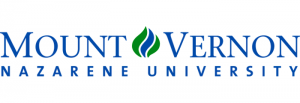
Points: 5
Program Website
The School of Graduate & Professional Studies at Mount Vernon Nazarene University offers a Master of Business Administration in Health Care Administration degree comprised of an engaging curriculum that helps students become informed, confident, and competent leaders in today’s healthcare marketplace. Students complete 36 hours in key areas within the field, including corporate finance, managerial accounting, global business, law and ethics, managerial economics, leadership, organizational behavior, and marketing management. The curriculum also investigates quality management in healthcare organizations and the management of healthcare human resources as well as health services strategies and best practices. Graduate students must hold a bachelor’s degree in order to be admitted into the program.
Degree Options:
Master of Business Administration – Health Care Administration
In-State Tuition: $17,928
Out-of-State Tuition: $17,928
Student-to-Faculty Ratio: 15:1
U.S. News & World Report Ranking:
N/A
3. Texas Woman’s University
Denton, Texas
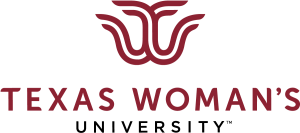
Points: 5
Program Website
In as few as 24 months, graduate students can earn a Master of Healthcare Administration from Texas Woman’s University that blends the theoretical knowledge and real-world experience needed in today’s healthcare administration positions. The College of Business offers a regular MHA, an executive MHA for students with at least three years of management experience, an MHA with an emphasis on business analytics, and a graduate certificate in healthcare management. Students complete 45 semester hours of coursework, including six hours of electives, as well as a professional portfolio during their final semester. Study abroad and internship opportunities may be used for elective credits in place of online courses.
Degree Options:
Master of Healthcare Administration
In-State Tuition: $17,655
Out-of-State Tuition: $36,330
Student-to-Faculty Ratio: 18:1
U.S. News & World Report Ranking:
#71 (tie)
2. Wilmington University
New Castle, Delaware

Points: 5
Program Website
Designed for working professionals and entrepreneurs, the Master of Business Administration at Wilmington University offers maximum flexibility through the student’s choice of online courses and traditional classes. Students can choose from more than 10 specialized MBA concentrations, including one in Health Care Administration. The program consists of accelerated seven-week courses that include 12 core courses in business-related topics such as quantitative methods, leadership, management, accounting, economics, business strategy, and finance. The healthcare administration concentration requires five additional classes in health policy and economics, marketing in the healthcare sector, legal aspects in healthcare, health insurance and reimbursement, and a seminar in healthcare administration.
Degree Options:
Master of Business Administration (MBA)
In-State Tuition: $17,172
Out-of-State Tuition: $17,172
Student-to-Faculty Ratio: 13:1
U.S. News & World Report Ranking:
N/A
1. Montana State University Billings
Billings, Montana

Points: 5
Program Website
Montana State University Billings confers a Master of Health Administration degree designed to provide the skills and knowledge required for leaders in health services administration and management. The 48- to 51-semester-credit program focuses on rural-frontier healthcare delivery and consists of a sequence of online eight-week classes, a capstone project, and a two-day, on-campus professional seminar every semester. Students who do not have a background in administration or healthcare management are required to participate in a three-credit internship. Areas of study include informatics, marketing and strategy, economics, accounting, statistics, human resources, and health policy and law. The program may be completed in 20 to 24 months.
Degree Options:
Master of Health Administration (MHA)
In-State Tuition: $13,280
Out-of-State Tuition: $24,726
Student-to-Faculty Ratio: 14:1
U.S. News & World Report Ranking:
N/A
Frequently Asked Questions
What are the Career Options for a Master’s in Healthcare Administration and Management Degree?
Graduates who earn a Master’s in Health Administration degree are qualified to pursue various administrative and/or managerial roles at clinics, hospitals, and other types of healthcare organizations and facilities. Depending on the concentration or specialization chosen, graduates may seek positions in niche areas within administration such as clinical leadership or information technology. Several popular career paths for MHA graduates include:
- Administrative Services Manager: These professionals are responsible for developing budget plans, directing teams of administrative employees, and handling their organization’s logistical needs such as supply upkeep and record keeping. The BLS indicates that 13% of professionals in this career are employed in social assistance and healthcare settings.
- Medical and Health Services Manager: Also known as healthcare administrators or healthcare executives, these professionals are responsible for overseeing and developing different medical and health services. Some managers direct specific branches within larger clinics and hospitals, while others manage whole organizations. Their duties include ensuring fair patient treatment and workplace compliance in terms of medical regulations and laws.
- Health Information and Medical Records Technicians: These professionals are responsible for organizing data for their patients and maintaining up-to-date, comprehensive records for the facility. Candidates must have experience with different classification codes and the technological systems used to create and maintain electronic health records. Health information and medical records technicians typically work alongside nurses, doctors, and other medical employees.
How Much Can You Earn in This Field?
Qualified healthcare professionals are in high demand, and the BLS indicates that employment is expected to grow by 20 percent through 2026. In addition to better employment rates, earning an MHA will increase the salary one can command within the industry of healthcare administration. When comparing earnings, however, keep in mind that a number of factors influence salary, including professional experience, level of education, location and individual workplaces, and the concentration chosen within the field.
The BLS reports that administrative services managers earned $94,020 per year in May 2017, with the top 10 percent earning more than $163,480 and the lowest 10 percent earning less than $52,750. Similarly, medical and health services managers earned $98,250 during the same year, with the top 10 percent earning more than $176,130, and the lowest 10 percent earning less than $58,350. Specifically, those working in healthcare administration and management reported that the top paying industries for this occupation include:
- Private, local, and state hospitals: $107,230
- Government: $106,230
- Outpatient care centers: $89,910
- Physicians’ offices: $89,760
- Residential care and nursing facilities: $82,950
How Long Should You Expect to Spend on Your Online Master’s Degree in Healthcare Administration and Management?
In most cases, an online master’s degree in healthcare administration and management consists of 36 to 48 hours of study, and the time to completion depends on a student’s enrollment status and whether he or she has responsibilities outside of his or her education. For example, while a part-time student will need roughly three years to earn his or her degree, a full-time student pursuing an accelerated program will finish in one year. Most full-time students will graduate in two years.
The amount of time you can expect to spend on the program also depends on how the degree is organized. Students looking to graduate as quickly as possible should look for a school that offers a self-paced delivery format in which they can complete coursework however and whenever they want. The other option is the cohort format, which involves students taking courses sequentially and moving through the program at the same time. Summer term course offerings, extensive prerequisites, and dual degree programs may also affect the time you can expect to put into the program.
Are There Any Professional Organizations for Healthcare Administrators and Managers?
Current students and graduates looking to make professional connections and learn more about the field of healthcare administration may consider joining an organization dedicated to serving professionals in this industry. The following three professional organizations offer a host of benefits for established and new healthcare administrators and managers, including job boards, networking events, seminars and workshops, and online classes and continuing education opportunities.
- American Association of Healthcare Administrative Management (AAHAM)
- Health Care Administrators Association HCAA
- Association for Healthcare Administrative Professionals (AHCAP)
Students who earn an online graduate degree in healthcare administration will have the skills and knowledge necessary to successfully navigate the complex, ever-changing demands of quality healthcare. Although some programs on the above list of the top 25 most affordable online master’s in healthcare administration and management degrees require students to have some background or experience in healthcare, there are a number of schools that accept students with a bachelor’s degree in any industry. Graduates of these master’s programs generally find work as senior-level healthcare administrators who run nursing homes, hospitals, and group medical practices.
AS Staff
This concludes our ranking of the Top 25 Most affordable Online Master’s of Healthcare Administration and Management Degrees.
Other Rankings of Interest:
- 20 Tuition-Free Colleges
- 30 Most Attractive Yet Affordable College Campuses
- The 50 Most Affordable Colleges with the Best Return
- 25 of the Oldest American Colleges and Universities
- 25 Most Affordable Online Master’s of Healthcare Administration and Management Degrees
- 25 Most Affordable Online Master’s of Nursing Degrees
- 25 Most Affordable Online Master’s of Public Health Degrees
- 20 Affordable Online Bachelor’s Degrees in Healthcare Administration and Management
- These 30 Colleges are Reversing the Rise in Tuition
- 50 Most Entrepreneurial Schools in America

 The Best Colleges
The Best Colleges The Lowest Costs
The Lowest Costs The Highest Returns
The Highest Returns